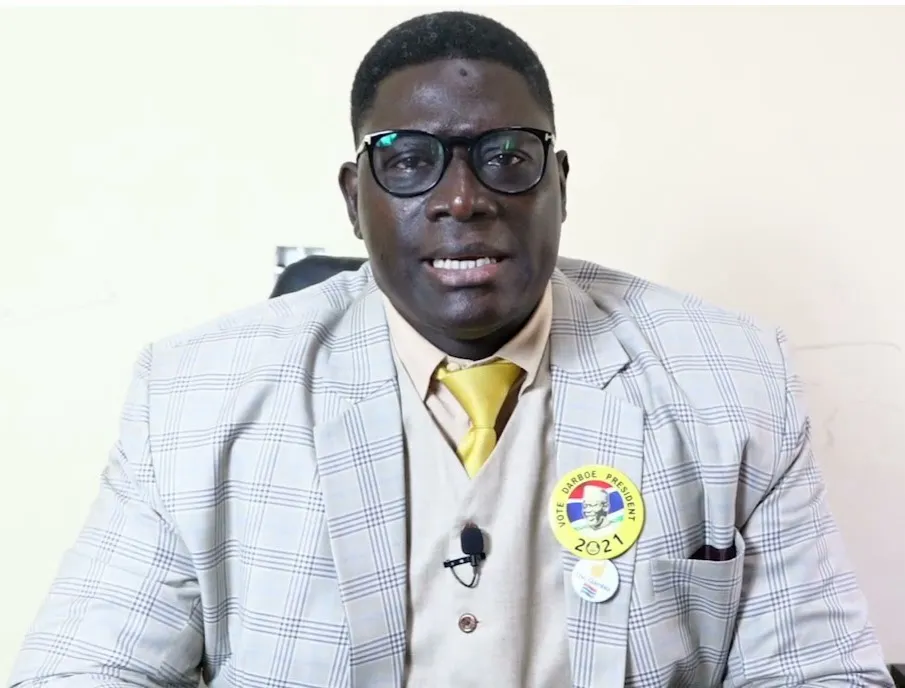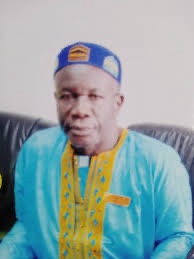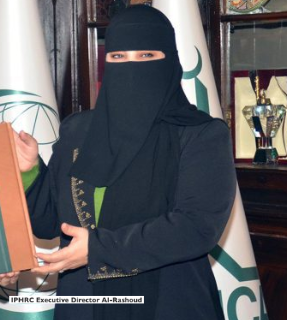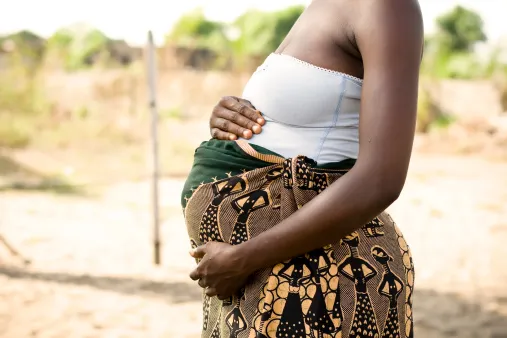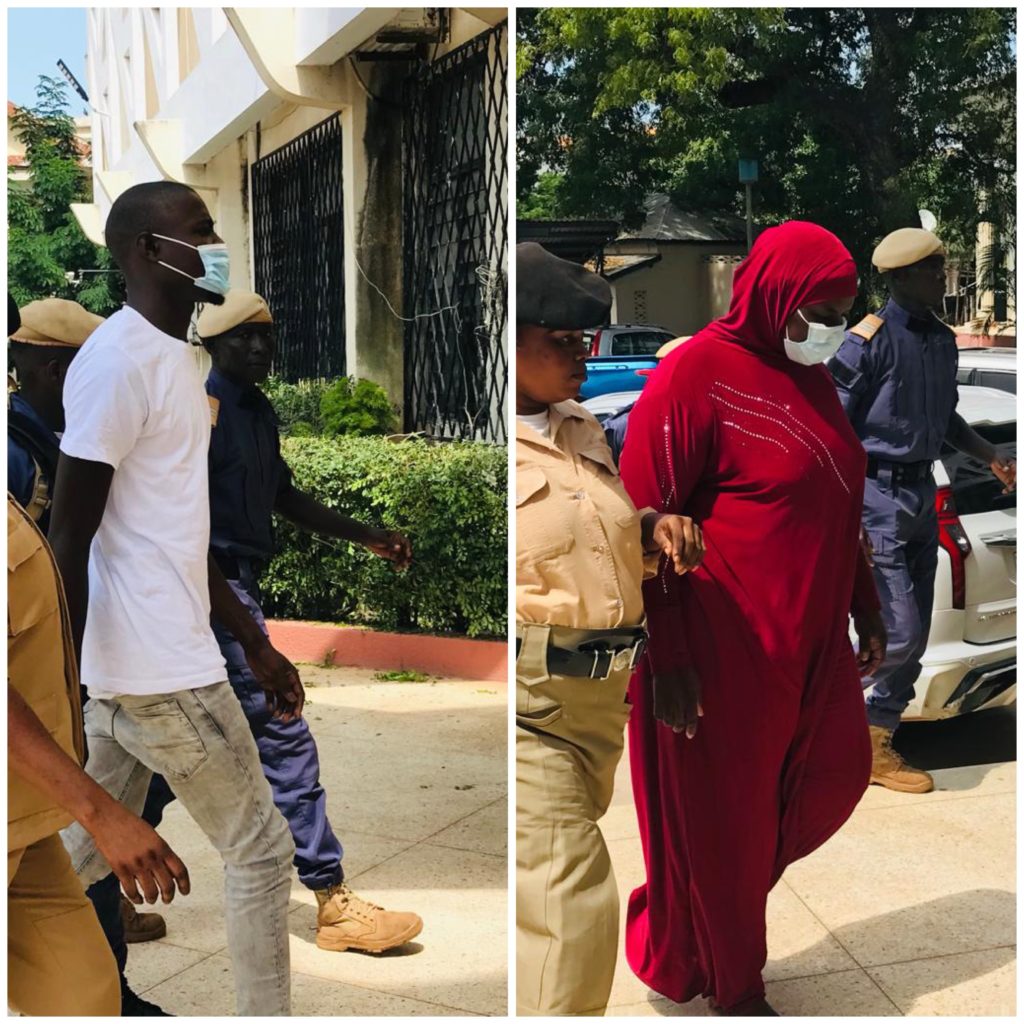
By Landing Ceesay
Justice Ebrima Jaiteh of the High Court of the Gambia rejected the bail application of Amie Bojang, the second accused in the Sukuta Jabang Traffic Lights murder trial involving Ousainou Bojang, the first accused.
Amie Bojang filed the bail application seeking release pending the hearing and determination of the murder charges. The court considered an originating summons dated September 25, filed on September 26, 2023. The application requested permission to present the case during the vacation and sought bail with terms deemed appropriate by the court.
The application, supported by a 15-paragraph affidavit from legal assistant Mariama Bah, was supplemented by an additional affidavit of 9 paragraphs sworn by Bah on October 3, 2023. The State, opposing the application, filed a 13-paragraph affidavit in opposition sworn by Fatou Waggeh on November 6, 2023.
Briefs of argument were ordered, filed, exchanged, and were deemed adopted by the court.
Representing the applicant, Amie Bojang, Counsel LK Mboge has raised a singular issue for consideration: whether his client is eligible for bail until the primary trial concludes. In presenting this argument, Counsel LK Mboge has directed the court’s attention to relevant legal provisions, specifically sections 19 (1) and 24 (3) (a) of the 1997 Constitution, as well as sections 99 of the Criminal Procedure Code, and sections 202 and 28 of the Criminal Code.
Furthermore, Counsel LK Mboge has cited numerous case law authorities in support of the request for bail, emphasizing the merits of the case and urging the court to favorably consider granting bail to Amie Bojang.
In their argument brief, the State presented a singular issue for consideration: whether the Applicant, Amie Bojang, is eligible for bail during the main trial’s hearing and determination.
Citing section 92 of the Evidence Act, the State advised the Court to overlook paragraph 11 of the affidavit, asserting its non-conformity with the Evidence Act.
Additionally, the State implored the Court to reject and dismiss the application.
In his Monday ruling on the bail application, Justice Jaiteh determined that the applicant, Amie Bojang, had not presented any special or exceptional circumstances that would warrant granting bail. Justice Jaiteh stated that he had thoroughly reviewed the affidavits submitted in support of the application as well as the affidavit in opposition.
“I will like to start by saying that the law is very clear on the point that the matters to be taken into consideration on whether Or not to grant bail are: the nature of the charge, the severity of the punishment, the quality of the evidence available, likelihood of the accused jumping bail or interfering With witnesses, the criminal record of the accused if any and the liKelihood of a repetition of the offence if granted bail.
“This list, which is far from exhaustive has been pronounced upon in plethora of cases. See the cases of ALBERT SAMBOU V THE STATE (UNREP MISC. APP. NO. 37/02); DOKUBO ASARI V ERN (2007) VOL 152 LRCN 116 @ 120 – 121 HELD 1. Section 99/1) of the Criminal Procedure Code (the CPC) undoubtedly gives this court the discretion to grant bail to any person other than a person accused of an offence punishable with death or imprisonment for life,” Hon. Justice Jaiteh said.
Justice Jaiteh emphasized that the court’s discretion must be judiciously exercised, taking into consideration the specific facts and circumstances of the case, and in compliance with any statutory criteria governing the grant of bail. In the case at hand, Justice Jaiteh pointed out that Amie Bojang is facing charges related to being an accessory after the fact of murder. Additionally, Justice Jaiteh mentioned that he examined the relevant law applicable to Amie Bojang’s charges, namely section 202 of the Criminal Code, Cap 10, volume 3, laws of The Gambia.
Hon. Justice Jaiteh stated that section 202 of the Criminal Code is accessory after the fact to murder and it states: “A person who becomes an accessory after the fact of murder commits a felony and is liable on conviction to life imprisonment.”
“I will like to start by saying that the law is very clear on the point that the matters to be taken into consideration on whether Or not to grant bail are: the nature of the charge, the severity of the punishment, the quality of the evidence available, likelihood of the accused jumping bail or interfering With witnesses, the criminal record of the accused if any and the liKelihood of a repetition of the offence if granted bail.
“This list, which is far from exhaustive has been pronounced upon in plethora of cases. See the cases of ALBERT SAMBOU V THE STATE (UNREP MISC. APP. NO. 37/02); DOKUBO ASARI V ERN (2007) VOL 152 LRCN 116 @ 120 – 121 HELD 1. Section 99/1) of the Criminal Procedure Code (the CPC) undoubtedly gives this court the discretion to grant bail to any person other than a person accused of an offence punishable with death or imprisonment for life,” Hon. Justice Jaiteh said.
Justice Jaiteh emphasized that the court’s discretion must be judiciously exercised, taking into consideration the specific facts and circumstances of the case, and in compliance with any statutory criteria governing the grant of bail. In the case at hand, Justice Jaiteh pointed out that Amie Bojang is facing charges related to being an accessory after the fact of murder. Additionally, Justice Jaiteh mentioned that he examined the relevant law applicable to Amie Bojang’s charges, namely section 202 of the Criminal Code, Cap 10, volume 3, laws of The Gambia.
Hon. Justice Jaiteh stated that section 202 of the Criminal Code is accessory after the fact to murder and it states: “A person who becomes an accessory after the fact of murder commits a felony and is liable on conviction to life imprisonment.”
Justice Jaiteh stated that life imprisonment is the prescribed penalty for being an accessory after the fact to murder, as outlined in section 202 of the Criminal Code. Additionally, he noted that in the context of Gambian Criminal Jurisprudence, section 39 (1) of the Criminal Procedure Code establishes a statutory framework for courts to decide on bail matters.
Justice Jaiteh added that as per Section 99(1) of the Criminal Procedure Code, individuals, excluding those accused of offenses punishable by death or life imprisonment, can seek bail when appearing before a court, either voluntarily or following a warrantless arrest. The court, at its discretion, may release the person upon entering into a recognizance, with or without sureties, conditioned on their appearance at the specified time and place.
“When a person, other than a person accused of an offence punishable with death or imprisonment for life, appears or is brought before a court on any process or after being arrested without a warrant, and is prepared at any time or at any stage of the proceedings to give bail, the person may in the discretion of the Court be released upon his or her entering in the manner hereinafter provided into a recognizance, with or without a surety or sureties, conditioned for his appearance before the court at the time and place mentioned in the recognizance.” Honorable Justice Jaiteh further explained that Section 99(1) of the Criminal Procedure Code grants the court discretion in granting bail for offenses not carrying the penalty of death or life imprisonment.
“What this means is that this Court can only grant bail to an accused person who is charged with a criminal offence and the punishment prescribed by law is not punishable with death or imprisonment for life. In the instant case, the Applicant is charged with an offence that is punishable with imprisonment for life. I must state that Accessory after the fact of murder is a serious offence attracting imprisonment for life, which is a factor to refuse bail to an alleged offender.“The question that I asked myself is that does this Court have discretion to grant bail, having regard to the offence alleged by the prosecution and the purports of section 99 (1) of the Criminal Procedure Code. The Applicant’s Counsel refers this Court to section 24 (3) o1997Constitutionthatdeals with the presumption of innocence and submits that the Applicants shall be presumed innocent until proven guilty,” he said.
Justice Jaiteh acknowledged that Section 24(3)(a) of The Gambia’s 1997 Constitution enshrines the presumption of innocence, stating “Every person who is charged with a criminal offence shall be presumed innocent until he or she is proved or has pleaded guilty.”
Justice Jaiteh emphasized his strong belief that the presumption of innocence stands as a cornerstone of The Gambia’s criminal justice system, ensuring that individuals accused of crimes are afforded the fundamental protection of being presumed innocent.
Justice Jaiteh also recognized society’s compelling interest in ensuring the accused’s appearance in court proceedings and in safeguarding the public from individuals who pose a genuine threat to persons or property.
Justice Jaiteh clarified that the presumption of innocence is not absolute or unqualified, citing the case of SHELDRAKE v DPP (2004) UKHL 43(9).
“Section 99 (1) of the Criminal Code creates a presumption in favor of bail for an offense that does not carry the punishment of death or imprisonment for life. The interest of the Applicant must be weighed and balanced in the context of the presumption in relation to section 99 (1) of the Criminal Procedure Code,” Hon. Justice Jaiteh said.
Justice Jaiteh, in addition, mentioned that he has carefully examined both the supporting and supplementary affidavits, emphasizing the assertions in paragraph 7 of the supporting affidavit. This paragraph states that Amie Bojang, identified as an asthmatic patient suffering from hypertension, provided medical documents from the Gambia Armed Force Medical Services at Yundum barracks.
Justice Jaiteh noted that the medical papers pertaining to Amie Bojang were issued while she was in detention at the Anti-crime unit. Consequently, he asserted that she remains eligible for medical attention at the Remand wing until the trial’s determination.
“I have read the affidavit in opposition, particularly paragraphs 10 and 11 where it avers that the Applicant has been held in police cells and has throughout the period of her detention been treated with the utmost respect and dignity as a human being and rebut that there is nothing on the face of exhibit MB1 content that indicates “Asthmatic” and Applicant’s diagnosis did not emanate from the Gambia Armed Forces, but rather Anti-crime Unit police clinic.
“I have perused exhibit MJ1 the medical certificate and the Respondent is partly correct that the said medical paper is not from the Gambia Armed Forces but rather from the Gambia Police Force Anti-crime police clinic, however, the second page of the exhibit “MJ1” is from the Gambia Armed Forces Medical Services, Yundum Barracks and “Asthmatic”‘ is inscribed on the face of MJ1,” he said.
Justice Jaiteh stated that Amie Bojang is currently facing a single charge of being an accessory after the fact of murder. He expressed concern about the serious nature of the punishment involved, indicating a potential risk of her jumping bail if released.
Furthermore, Justice Jaiteh noted that the oral argument presented by Counsel LK Mboge and the supporting statements for the bail application are no longer relevant. This is due to the ongoing trial at the High Court and the State’s commitment to promptly and fairly prosecute the case within a reasonable timeframe.
“I have placed the averments of the applicant (Amie Bojang) side by side with the averments in the affidavit in opposition and it is my view that on a balance of probabilities, the applicant has not established special or exceptional circumstances before the court to be considered in grant of bail. I have considered the fears raised by the Applicant in their affidavit in support of the application.
“It should also be noted that the Applicant is already arraigned before the High Court of The Gambia, and there is no pending investigation and the trial is ongoing with reasonable time and if the respective Counsel cooperate, this matter will be concluded sooner than later and the Applicant would know her fate in this criminal trial. Given all the foregoing, I hold the strong view that to maintain the status quo will therefore not occasion gross injustice in this matter,” Hon. Justice Jaiteh ruled.
The Honorable Justice additionally determined that considering the gravity of the penalty and the intent outlined in section 99(1) of the Criminal Procedure Code, along with other factors mentioned earlier, Amie Bojang is ineligible for bail.
“The bail application is hereby refused and accordingly dismissed. I shall order as follows: The Director General of Mile 2 Central Prisons is ordered to provide medical service and attention to the Applicant as to when it is necessary and expedient to do so,” Hon. Justice Jaiteh ruled.
Background of the Case
On September 21, 2023, Ousainou and Amie Bojang made their initial appearance before Principal Magistrate Omar Jabang of the Kanifing Magistrates’ Court, facing charges related to the shooting incident at Sukuta Jabang Traffic Lights, which resulted in the tragic deaths of two PIU officers and severe injury to another on September 12, 2023.
The police had initially leveled four charges against the accused, including two murder charges, an act of terrorism charge, and an accessory after the fact to murder charge. Subsequently, Principal Magistrate Omar Jabang transferred the murder trial to the Special Criminal Division of the High Court of The Gambia.
On October 12, 2023, the case was presented before Hon. Justice Ebrima Jaiteh of the High Court of The Gambia.
On October 19, 2023, the State brought six charges against Ousainou Bojang, the prime suspect in the deaths of two Police Intervention Unit (PIU) officers, and a single charge against his elder sister, Amie Bojang.
On October 24, 2023, both Ousainou Bojang and Amie Bojang entered pleas of not guilty to the charges.
